ABOUT US
Al-Hamd International Shipping & Logistics has more than 10 years experience and specialized staff to handle your shipments Worldwide according to your requirement.
At Al-Hamd International Shipping & Logistics we care about you, like a family. We put our family first by providing the best services, it’s only natural to go above and beyond your expectations through price setting, building customer relationships, customer awareness and on-time delivery with a staff of experienced shipping handling specialists.
We highly value you, believing our success is contingent on your success. Each shipment transported by Al-Hamd International Shipping & Logistics whether it is FCL , LCL , Air cargo and Break bulk shipment, We stand by our commitment to deliver you superior services which you deserve.
We are proud to intimate that we are known in freight forwarding and shipping industry for our high quality of services, especially in FCLs and consolidation, we are controlling a major share of cargo (inbound & outbound) of the local market on basis of best rates with the fastest transit time for Worldwide destinations.
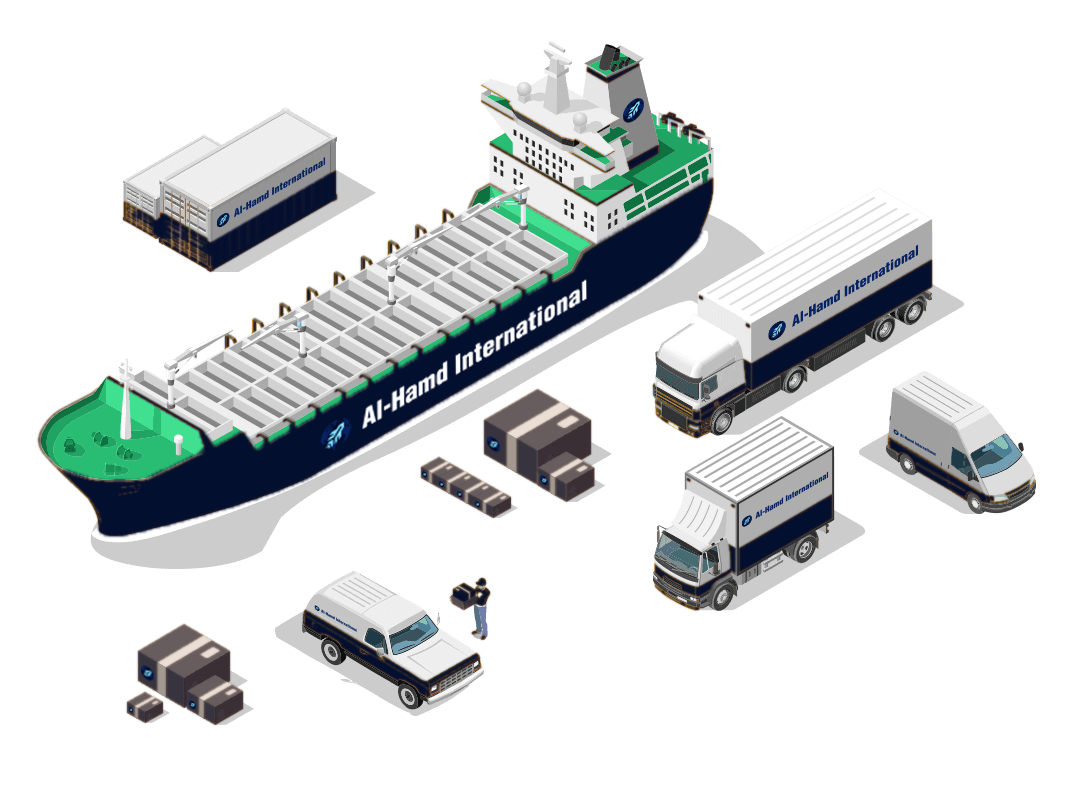
Inbound & Outbound Cargo
The services are not just for outbound cargo, the inbound cargo is also efficiently handled.
Our Team
Al-Hamd International Shipping & Logistics ensures to provide efficient, quality and timely services in accordance with agreed requirements for customer’s entire satisfaction. Our qualified & highly experienced team of operations, customer services and over 150 agents around the globe takes care of your shipments from booking up to delivery of consignments at port of destination and vice versa. We are fully capable and equipped to handle efficiently all FCL & LCL cargo at all ports & off docks in UAE
Safety & Handling
We are well-known for working with best reputable shipping lines to undertake our shipments, ensuring their safety and handling them efficiently.
Safety
Handling
SERVICES
Sea Freight
Al-Hamd International Shipping & Logistics include container transport, dry bulk transport, oil tanker service, ro-ro/roll-off transport,etc. If your cargo is typically large, heavy and cost is your primary concern as compared to time, your cargo needs our sea freight services. Our significant volumes every year, enables us to offer you capacity, frequent departures, and competitive rates. We also offer a vast choice of destinations from every major port in the world with major shipping lines, with the best transit times and fully flexible scheduling, to meet your shipping needs.
FCL
With our FCL SERVICE you will get Competitive rates Multi carrier options Container stuffing / de-stuffing services Strong EXW services at origin Competent DDP and DAP capabilities at destination Cargo insurance options .
LCL
We pay close attention to the changes and opportunities of the logistic market and listen with heart to customer’s needs. we make innovation and improve our value constantly to develop more LCL service in the destination spot .
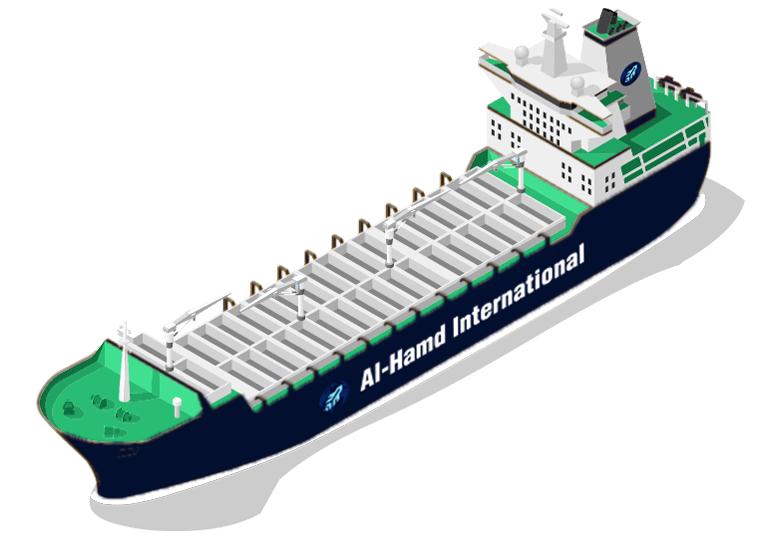
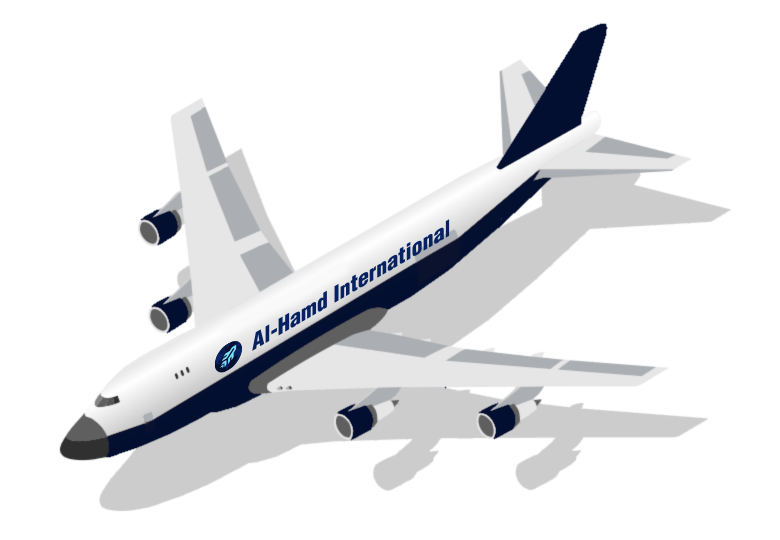
AIR FREIGHT
Al-Hamd International Shipping & Logistics have a professional air freight team taking care of air freight business from worldwide. Our service is able to crosstrade like foreign To foreign cover china main cities and places all over the world such as India & Subcontinent, Europe, Southeast Asia, the Middle East, Australia, etc. We keep a close relationship with domestics and overseas airlines which is also the main reason why we can offer our customers competitive price. Based on the frequent cooperation with airlines, the best service will be provided with more efficient messages, more accurate shipping date and flight information, and better price. Complete “Door-to-Door” services Strict SOP’s to ensure smooth operations Customized procedures to handle special cargo Console services for selected trade-lanes One point of contact via a national control tower Immediate arrival notice Global track and trace solutions
WAREHOUSE
We operate more than 300 warehouses, including specialized temperature controlled facilities. It has set up close relationships with several well-known multinational corporations. In addition to providing the optimal solution to the Warehousing and Logistics service, we are able to provide value-added services to customers, including stocks management and distribution, pick & pack service & courier service. Al-Hamd International Shipping & Logistics approach is proven to reduce costs, improve customer service and deliver measurable efficiency gains. We will carry out a full review of your requirements and then design and deliver the most advantageous warehouse.
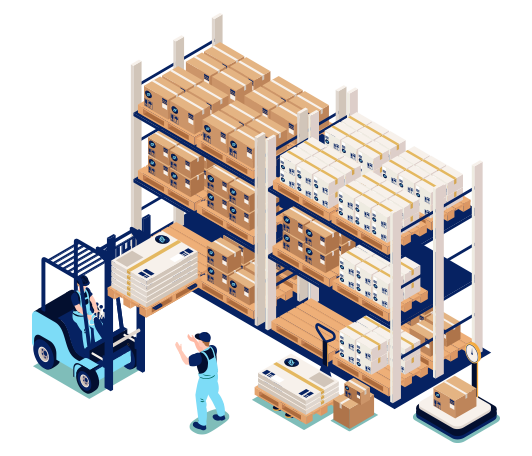
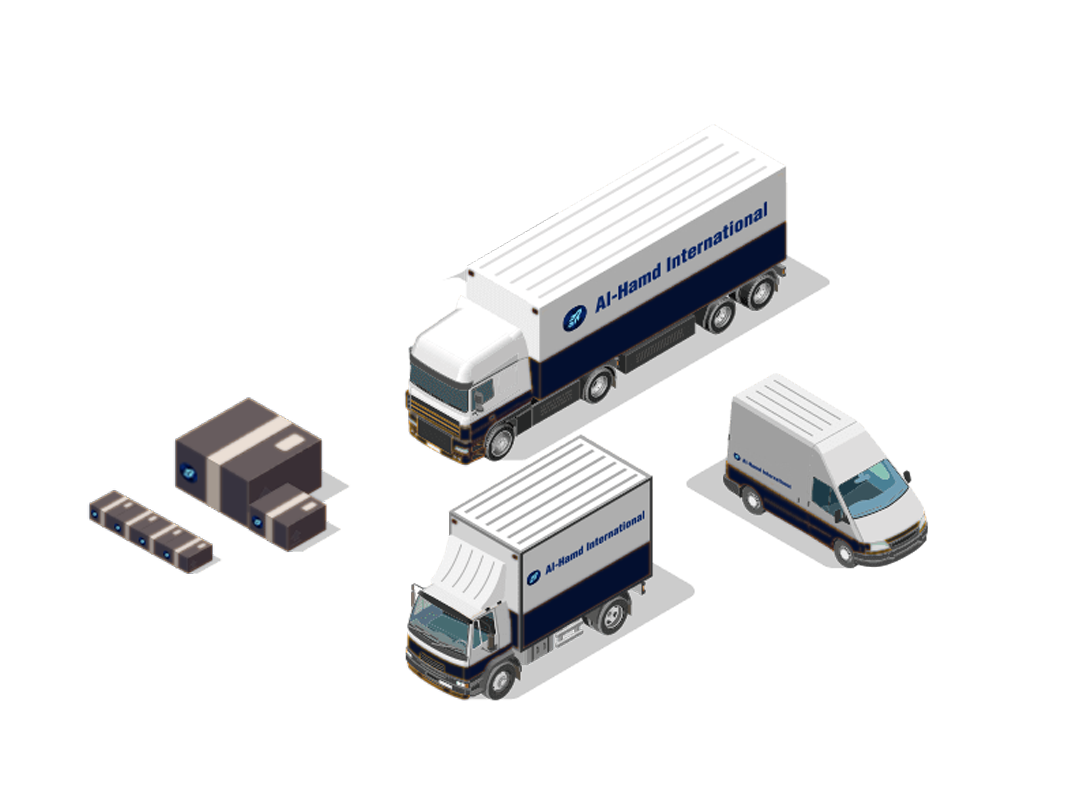
LAND TRANSPORT
No matter what your shipment is, whether it is a single shipment, a few pallets or multiple full loads every week we are there to help you plan it. Whether it is a domestic shipment or a shipment to neighboring countries, we are fully equipped with our latest technology deployment to give state of the art transparency. Our comprehensive offering of connected transport solutions helps you plan With our Land Transport Service you will get Transport from local and interstate ports to factory Transport from factory to distribution center Dedicated customer service & allocation team Break-bulk specialist Daily, weekly and monthly reporting
CUSTOM BROKERAGE
Our Licensed Brokers are supported by trained personnel who are fully conversant with customs regulations & procedures. Our experienced staff have been in the industry for many years, giving our customers the best solutions in clearing their goods at the fastest & most cost – effective manner, promoting rapid clearance together with automatic updating of records.


Project management / Break Bulk Management
We provide complete project management and forwarding solutions for various industrial and infrastructure projects & take on an active role in assisting you for the handling off your off size / heavy equipment transportation as a project.
- Assist in planning and cost effective operations
- Client and site coordination
- Heavy lift and abnormal lift services
- Positioning and installation services
- Project documentation and compilation of installation manuals
- Sourcing and material supply services
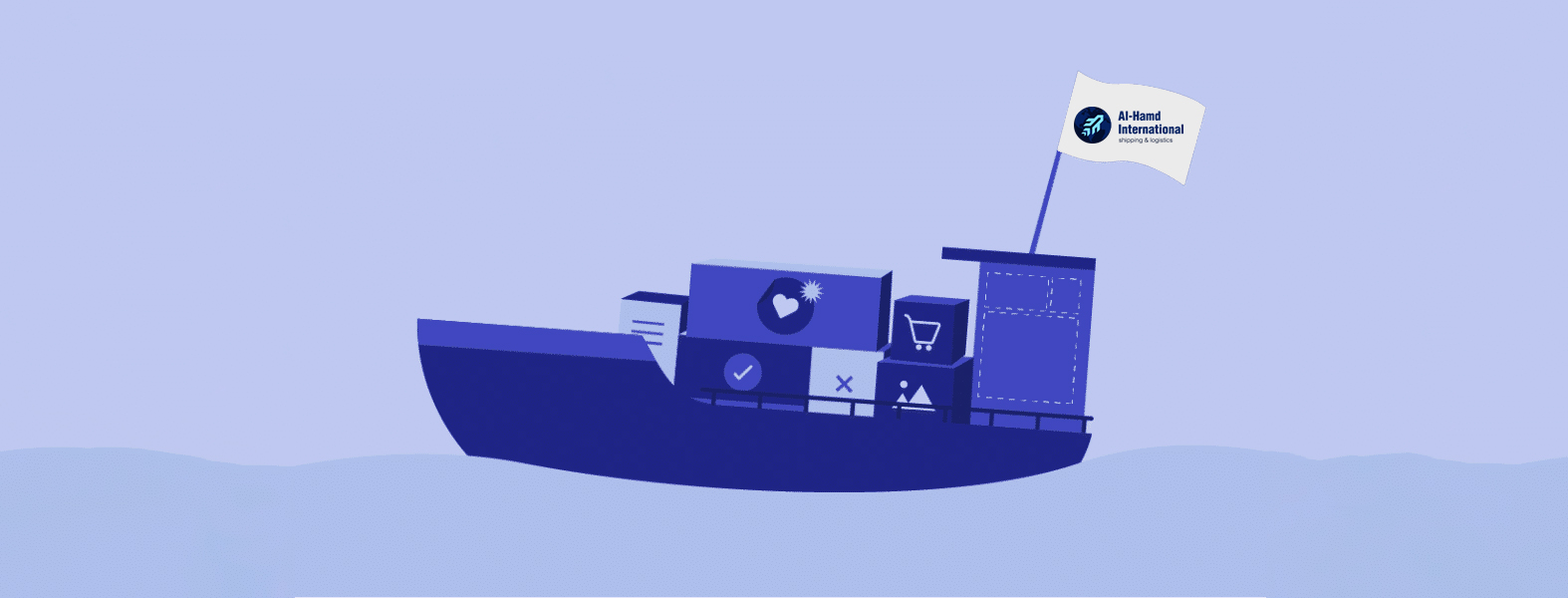
SHIPPING GUIDE
INCOTERMS:
Language is one of the most complex and important tools of International Trade. As in any complex and sophisticated business, small changes in wording can have a major impact on all aspects of a business agreement.
Word definitions often differ from industry to industry. This is especially true of global trade. Where such fundamental phrases as “delivery” can have a far different meaning in the business than in the rest of the world.
For business terminology to be effective, phrases must mean the same thing throughout the industry. That is why the International Chamber of Commerce created “INCOTERMS” in 1936. INCOTERMS are designed to create a bridge between different members of the industry by acting as a uniform language they can use.
Each INCOTERM refers to a type of agreement for the purchase and shipping of goods internationally. There are 11 different terms, each of which helps users deal with different situations involving the movement of goods. For example, the term FCA is often used with shipments involving Ro/Ro or container transport.
INCOTERMS also deal with the documentation required for global trade, specifying which parties are responsible for which documents. Determining the paperwork required to move a shipment is an important job, since requirements vary so much between countries. Two items, however, are standard: the commercial invoice and the packing list.
INCOTERMS were created primarily for people inside the world of global trade. Outsiders frequently find them difficult to understand. Seemingly common words such as “responsibility” and “delivery” have different meanings in global trade than they do in other situations.
In global trade, “delivery” refers to the seller fulfilling the obligation of the terms of sale or to completing a contractual obligation. “Delivery” can occur while the merchandise is on a vessel on the high seas and the parties involved are thousands of miles from the goods. In the end, however, the terms wind up boiling down to a few basic specifics:
Costs: who is responsible for the expenses involved in a shipment at a given point in the shipment’s journey?
Control: who owns the goods at a given point in the journey?
Liability: who is responsible for paying damage to goods at a given point in a shipment’s transit?
It is essential for shippers to know the exact status of their shipments in terms of ownership and responsibility. It is also vital for sellers & buyers to arrange insurance on their goods while the goods are in their “legal” possession. Lack of insurance can result in wasted time, lawsuits, and broken relationships.
INCOTERMS can thus have a direct financial impact on a company’s business. What is important is not the acronyms, but the business results. Often companies like to be in control of their freight. That being the case, sellers of goods might choose to sell CIF, which gives them a good grasp of shipments moving out of their country, and buyers may prefer to purchase FOB, which gives them a tighter hold on goods moving into their country.
In this glossary, we’ll tell you what terms such as CIF and FOB mean and their impact on the trade process. In addition, since we realize that most international buyers and sellers do not handle goods themselves, but work through customs brokers and freight forwarders, we’ll discuss how both fit into the terms under discussion.
INCOTERMS are most frequently listed by category. Terms beginning with F refer to shipments where the primary cost of shipping is not paid for by the seller. Terms beginning with C deal with shipments where the seller pays for shipping. E-terms occur when a seller’s responsibilities are fulfilled when goods are ready to depart from their facilities. D terms cover shipments where the shipper/seller’s responsibility ends when the goods arrive at some specific point. Because shipments are moving into a country, D terms usually involve the services of a customs broker and a freight forwarder. In addition, D terms also deal with the pier or docking charges found at virtually all ports and determining who is responsible for each charge.
Recently the ICC changed basic aspects of the definitions of a number of INCOTERMS, buyers and sellers should be aware of this. Terms that have changed have a star alongside them.
SHIPPING TERMS

EXW (EX-Works)
One of the simplest and most basic shipment arrangements places the minimum responsibility on the seller with greater responsibility on the buyer. In an EX-Works transaction, goods are basically made available for pickup at the shipper/seller’s factory or warehouse and “delivery” is accomplished when the merchandise is released to the consignee’s freight forwarder. The buyer is responsible for making arrangements with their forwarder for insurance, export clearance and handling all other paperwork.

FOB (Free On Board)
One of the most commonly used-and misused-terms, FOB means that the shipper/seller uses his freight forwarder to move the merchandise to the port or designated point of origin. Though frequently used to describe inland movement of cargo, FOB specifically refers to ocean or inland waterway transportation of goods. “Delivery” is accomplished when the shipper/seller releases the goods to the buyer’s forwarder. The buyer’s responsibility for insurance and transportation begins at the same moment.

FCA (Free Carrier)
In this type of transaction, the seller is responsible for arranging transportation, but he is acting at the risk and the expense of the buyer. Where in FOB the freight forwarder or carrier is the choice of the buyer, in FCA the seller chooses and works with the freight forwarder or the carrier. “Delivery” is accomplished at a predetermined port or destination point and the buyer is responsible for Insurance.

FAS (Free Alongside Ship)
In these transactions, the buyer bears all the transportation costs and the risk of loss of goods. FAS requires the shipper/seller to clear goods for export, which is a reversal from past practices. Companies selling on these terms will ordinarily use their freight forwarder to clear the goods for export. “Delivery” is accomplished when the goods are turned over to the Buyers Forwarder for insurance and transportation.

CFR (Cost and Freight)
This term formerly known as CNF (C&F) defines two distinct and separate responsibilities-one is dealing with the actual cost of merchandise “C” and the other “F” refers to the freight charges to a predetermined destination point. It is the shipper/seller’s responsibility to get goods from their door to the port of destination. “Delivery” is accomplished at this time. It is the buyer’s responsibility to cover insurance from the port of origin or port of shipment to buyer’s door. Given that the shipper is responsible for transportation, the shipper also chooses the forwarder.

CIF (Cost, Insurance and Freight)
This arrangement similar to CFR, but instead of the buyer insuring the goods for the maritime phase of the voyage, the shipper/seller will insure the merchandise. In this arrangement, the seller usually chooses the forwarder. “Delivery” as above, is accomplished at the port of destination.

CPT (Carriage Paid To)
In CPT transactions the shipper/seller has the same obligations found with CIF, with the addition that the seller has to buy cargo insurance, naming the buyer as the insured while the goods are in transit.

CIP (Carriage and Insurance Paid To)
This term is primarily used for multi modal transport. Because it relies on the carrier’s insurance, the shipper/seller is only required to purchase minimum coverage. When this particular agreement is in force, Freight Forwarders often act in effect, as carriers. The buyer’s insurance is effective when the goods are turned over to the Forwarder.

DAT (Delivered At Terminal)
This term is used for any type of shipments. The shipper/seller pays for carriage to the terminal, except for costs related to import clearance, and assumes all risks up to the point that the goods are unloaded at the terminal.

DAP (Delivered At Place)
DAP term is used for any type of shipments. The shipper/seller pays for carriage to the named place, except for costs related to import clearance, and assumes all risks prior to the point that the goods are ready for unloading by the buyer.

DDP (Delivered Duty Paid)
DDP term tend to be used in intermodal or courier-type shipments. Whereby, the shipper/seller is responsible for dealing with all the tasks involved in moving goods from the manufacturing plant to the buyer/consignee’s door. It is the shipper/seller’s responsibility to insure the goods and absorb all costs and risks including the payment of duty and fees..







